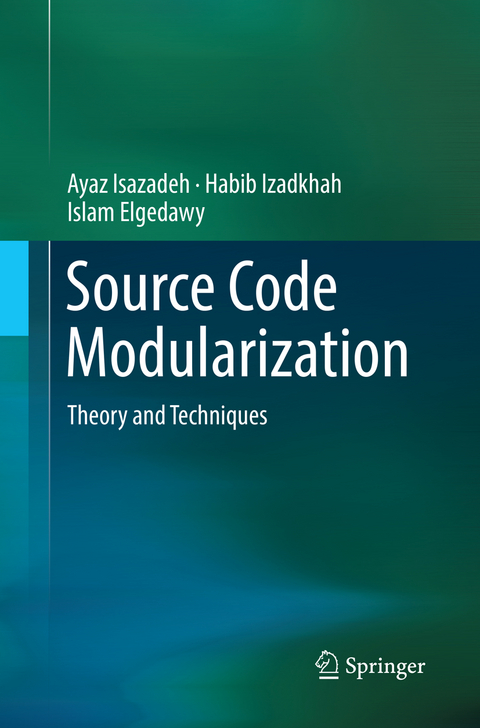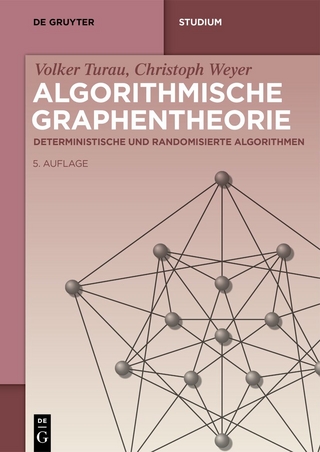
Source Code Modularization
Springer International Publishing (Verlag)
978-3-319-87528-6 (ISBN)
This book presents source code modularization as a key activity in reverse engineering to extract the software architecture from the existing source code. To this end, it provides detailed techniques for source code modularization and discusses their effects on different software quality attributes. Nonetheless, it is not a mere survey of source code modularization algorithms, but rather a consistent and unifying theoretical modularization framework, and as such is the first publication that comprehensively examines the models and techniques for source code modularization.
It enables readers to gain a thorough understanding of topics like software artifacts proximity, hierarchical and partitional modularization algorithms, search- and algebraic-based software modularization, software modularization evaluation techniques and software quality attributes and modularization.
This book introduces students and software professionals to the fundamental ideas of source code modularization concepts, similarity/dissimilarity metrics, modularization metrics, and quality assurance. Further, it allows undergraduate and graduate students in software engineering, computer science, and computer engineering with no prior experience in the software industry to explore the subject in a step-by-step manner. Practitioners benefit from the structured presentation and comprehensive nature of the materials, while the large number of bibliographic references makes this book a valuable resource for researchers working on source code modularization.
Ayaz Isazadeh is Professor and the founding member of the Department of Computer Science, University of Tabriz, Iran. His research interests include software engineering, software architecture, and recently, software structural evolution, with over 100 papers in international journals and conference proceedings. He has served as the chair and honorary chair of numerous national and international conferences. Ayaz received his Master's degree in Electrical Engineering and Computer Science from Princeton University, in 1978, and Ph.D. degree in Computing and Information Science from Queen's University, Canada, in 1996. Before returning to graduate school in 1992, he worked with AT&T Bell Laboratories for over 8 years on various software systems development. Habib Izadkhah is Assistant Professor at the Department of Computer Science, University of Tabriz, Iran. His research interests include software engineering, software architecture, reverse engineering, and organic software. More recently he has been working on the application of reverse engineering and modularization to the extract of software structure for large scale and multi programming languages source code. He contributed to various research projects, co-authored a number of research papers in international conferences, workshops and journals, and also has written five books. Islam Elgedawy is Associate Professor at the Computer Engineering Department, Middle East Technical University, Northern Cyprus Campus. His research interests include the areas of service-oriented computing, organic computing, and software engineering. More recently he has been working on designing and building organic composite web services, where different models for machine consciousness and digital brains are incorporated. He led and contributed to various research projects, and co-authored a number of research papers in international conferences, workshops and journals, and he also has a growing record of consultancy and professional services.
Introduction.- Proximity of Software Artefacts.- Hierarchical and Partitional Modularization Algorithms.- Search-Based Software Modularization.- Algebraically-Based Software Modularization.- Techniques for the Evaluation of Software Modularizations.- Software Quality Attributes and Modularization.- References.- Index.
| Erscheint lt. Verlag | 28.8.2018 |
|---|---|
| Zusatzinfo | XII, 265 p. 130 illus., 28 illus. in color. |
| Verlagsort | Cham |
| Sprache | englisch |
| Maße | 155 x 235 mm |
| Gewicht | 433 g |
| Themenwelt | Mathematik / Informatik ► Informatik ► Software Entwicklung |
| Mathematik / Informatik ► Mathematik ► Finanz- / Wirtschaftsmathematik | |
| Schlagworte | Reverse Engineering • software architecture • software evolution • Software Modeling • Software modularity • software system structures |
| ISBN-10 | 3-319-87528-0 / 3319875280 |
| ISBN-13 | 978-3-319-87528-6 / 9783319875286 |
| Zustand | Neuware |
| Haben Sie eine Frage zum Produkt? |
aus dem Bereich


